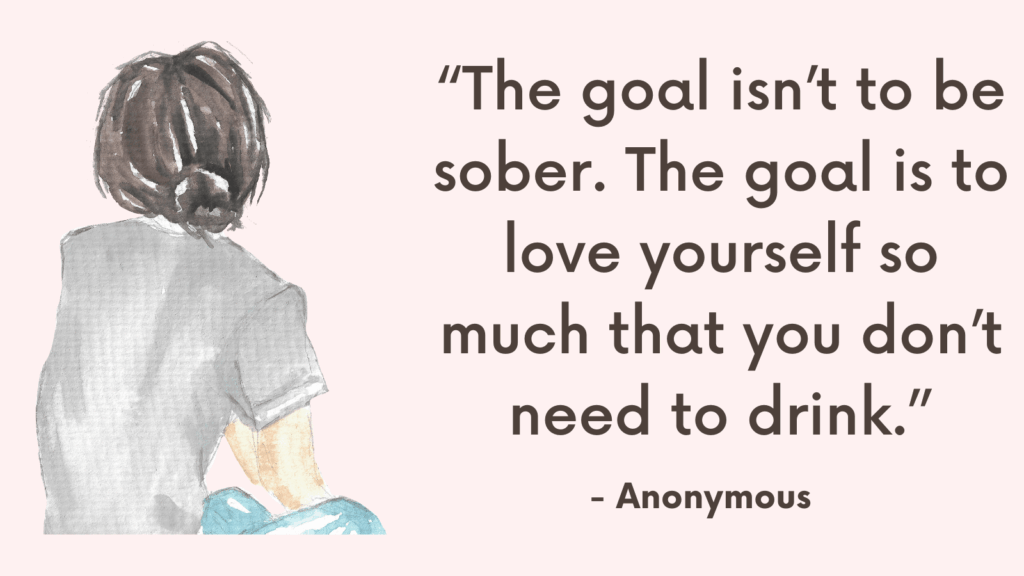In this post, you’re going to learn all about the 4 stages of addiction.
What Constitutes An Addiction?
An addiction is a complex and chronic condition characterized by compulsive engagement in a specific behavior or the use of a substance despite negative consequences.
It goes beyond mere physical dependence or tolerance.
Several key factors constitute an addiction:
1. Compulsion and Loss of Control
Individuals with addiction experience an intense urge or compulsion to engage in the behavior or consume the substance.
They often find it challenging to control or stop their behavior, even when they desire to do so.
2. Negative Consequences
Addictions are associated with adverse consequences that impact various domains of life.
These may include deteriorating physical and mental health, strained relationships, financial difficulties, legal issues, and difficulties maintaining responsibilities at work or school.
3. Tolerance and Withdrawal
Tolerance occurs when the body adapts to the substance, requiring higher doses to achieve the desired effect.
Withdrawal symptoms manifest when the substance is reduced or discontinued, leading individuals to continue engaging in the behavior or consuming the substance to avoid withdrawal discomfort.
4. Preoccupation and Obsession
People with addiction often find themselves preoccupied with thoughts of the behavior or substance.
It may dominate their thinking, resulting in a reduction in other interests, hobbies, or activities they once enjoyed.
5. Escalation of Use
Over time, individuals with addiction tend to increase the frequency and quantity of engagement in the behavior or substance use to achieve the desired effects.
This escalation can result in a loss of control and contribute to the development of negative consequences.
6. Neglected Responsibilities and Interests
Addiction often leads to neglect of personal and professional responsibilities.
Individuals may disregard their obligations, lose interest in previously valued activities, and experience difficulties in maintaining relationships.
It’s important to note that addiction can manifest in various forms, including substance addictions (e.g., alcohol, drugs) and behavioral addictions (e.g., gambling, gaming, internet use).
The specific criteria for diagnosing addiction differ depending on the substance or behavior involved.
However, the key underlying elements of compulsion, loss of control, negative consequences, and preoccupation remain consistent across different types of addictions.
Related: What Is Emotional Sobriety and How to Achieve It? (+FREE Worksheets)
4 Stages of Addiction
Stage 1. Experimentation
This initial stage often involves voluntary and occasional substance use out of curiosity or peer pressure.
Individuals may experiment with substances to seek pleasure, enhance social experiences, or cope with stress.
At this stage, the use is typically sporadic, and there may be no noticeable negative consequences.
However, continued substance use can increase the risk of moving to the next stage.
Stage 2. Regular Use
In this stage, individuals begin using substances more frequently and in larger quantities.
Substance use becomes a routine part of their life, and they may start experiencing cravings and escalating tolerance.
Tolerance occurs when the body adapts to the substance, requiring higher doses to achieve the desired effects.
Consequently, individuals may increase their substance use to overcome diminishing effects, which can lead to impaired control over consumption.
Related: How To Step Out Of Denial? Top 10 Steps To Overcome Denial When The Truth Is Heartbreaking
Stage 3. Risky Use
At this stage, individuals demonstrate a loss of control over their substance use.
They engage in risky behaviors such as using substances in dangerous situations, experiencing conflicts within personal relationships, and neglecting responsibilities.
The brain’s reward system becomes dysregulated, leading to intense cravings and compulsive drug-seeking behavior.
Physical and psychological dependence sets in, accompanied by withdrawal symptoms when substance use is reduced or discontinued.
Stage 4. Addiction and Dependency
The final stage is characterized by a severe and chronic substance use disorder.
Individuals experience significant impairment in various areas of life, including work, education, and relationships.
They prioritize substance use over other activities and may neglect personal hygiene and health.
Cognitive function deteriorates, decision-making becomes impaired, and emotional instability is common.
Physical health deteriorates, and individuals may develop medical complications related to substance abuse.
Attempts to quit or cut back on substance use often result in relapse due to the powerful grip of addiction.
It’s important to note that not everyone progresses through these stages in a linear fashion, and the pace of progression can vary depending on various factors such as genetic vulnerability, environmental influences, co-occurring mental health conditions, and social support.
Understanding the stages of addiction can help individuals and their loved ones recognize problematic behaviors and seek appropriate help at earlier stages before addiction becomes more entrenched.
Related: Porn Addiction Test (+Best 6 Tips On How To Get Free From Porn Addiction)
What Causes Addiction?
The development of addiction is influenced by a combination of biological, psychological, and environmental factors. Understanding these factors can help shed light on the causes of addiction:
1. Genetic Predisposition
Certain individuals may have a genetic vulnerability to developing addiction due to inherited traits that impact brain function and reward pathways.
Genetic factors can contribute to an increased risk for addiction, but they do not guarantee its development.
2. Brain Chemistry
Addiction involves changes in the brain’s reward system, which plays a crucial role in motivation and reinforcement.
Substance use or engaging in addictive behaviors can lead to the release of dopamine, a neurotransmitter associated with pleasure and reward.
Over time, the brain may adapt to these changes, leading to the need for more of the substance or behavior to obtain the same pleasurable effects.
3. Psychological Factors
Certain underlying psychological factors can contribute to addiction vulnerability.
These may include low self-esteem, high levels of stress, a history of trauma or abuse, untreated mental health conditions (such as depression or anxiety), and difficulties in coping with emotions or managing impulse control.
Related: Am I Self-Destructive Quiz
4. Environmental Influences
The environment in which an individual lives and their experiences greatly impact addiction risk.
Factors such as exposure to substance use, peer pressure, family dynamics, availability of substances, socioeconomic status, and cultural attitudes towards substance use can all contribute to the development of addiction.
5. Co-occurring Disorders
Addiction often co-occurs with other mental health disorders.
Individuals with conditions such as depression, anxiety, bipolar disorder, or attention-deficit hyperactivity disorder (ADHD) may be more prone to developing addiction as a way to cope with their symptoms.
It is important to understand that addiction is a multifaceted issue, and its causes can vary greatly from person to person.
Genetics, brain chemistry, psychological factors, environmental influences, and co-occurring disorders all interact to contribute to the development of addiction.
Related: Undercontrolled (UC) Personality Vs. Overcontrolled (OC) Personality
How to Beat Addiction?
Addiction is a complex and challenging condition that affects individuals across various demographics.
Overcoming addiction requires a multi-faceted approach that combines expert guidance, evidence-based treatments, and personal commitment.
1. Seek Professional Help
One of the most crucial steps in overcoming addiction is seeking professional help.
Consult with a qualified healthcare professional or addiction specialist who can provide an accurate diagnosis and develop an individualized treatment plan.
They will determine the severity of your addiction and recommend appropriate interventions, such as therapy, medication-assisted treatment, or support groups.
2. Build a Strong Support System
Building a robust support system is crucial for long-term recovery.
Surround yourself with individuals who understand your journey, offer encouragement, and hold you accountable.
Friends, family members, or support groups like Alcoholics Anonymous (AA), Narcotics Anonymous (NA), or SMART Recovery can provide invaluable support, a sense of community, and opportunities for sharing experiences.
Related: Am I Addicted To My Phone Quiz (+Digital Detox Challenge)
3. Develop Coping Skills
Addiction often arises as a means of coping with underlying emotional, psychological, or environmental factors.
Developing healthy coping skills is essential for maintaining sobriety.
Engage in activities that promote physical and mental well-being, such as exercise, mindfulness, meditation, journaling, and hobbies.
These practices can help you manage stress, regulate emotions, and provide alternative outlets for self-expression and gratification.
4. Lifestyle Changes
A comprehensive recovery approach involves making positive lifestyle changes.
Prioritize regular sleep patterns, balanced nutrition, and exercise routines that promote overall well-being.
Adequate sleep helps regulate mood and decreases vulnerability to cravings.
A nutritious diet supports physical health and can contribute to improved mood stability.
Exercise boosts endorphin production, reduces stress, and enhances mental well-being.
Related: Best 99 Coping Skills (+FREE Coping Worksheets)
5. Avoid Triggers and High-Risk Situations
Identify and avoid triggers that may provoke cravings or lead you back towards addictive behavior.
Analyze your environment and lifestyle, removing or modifying elements that contribute to relapse.
If certain people, places, or activities pose a significant risk, consider making changes to ensure your recovery remains a priority.
6. Set Realistic Goals
Recovery is a journey rather than a destination.
It is important to set realistic goals and celebrate small victories along the way.
Recognize that setbacks may occur on your path to recovery, but do not let them discourage you.
Learn from these setbacks and utilize them as opportunities for growth.
Remember, recovery is a continuous process that requires patience and persistence.
7. Continuing Care and Aftercare
Once you have achieved initial success in beating addiction, continuing care and aftercare are essential for maintaining long-term recovery.
Attend support group meetings regularly, engage in ongoing therapy sessions, and stay connected with your support network.
Explore relapse prevention programs that provide tools and strategies to navigate challenges and prevent relapse.
Related: How To Feel Your Feelings? Top 9 Difficult Emotions To Cope With In Healthy Ways
Conclusion
Overcoming addiction requires a comprehensive approach that addresses the physical, psychological, and social aspects of the condition.
By seeking professional help, building a strong support system, developing coping skills, making lifestyle changes, avoiding triggers, setting realistic goals, and prioritizing continuing care, you can increase your chances of successfully beating addiction.
FREE Addiction Worksheets PDF
FAQ
How does addiction affect the brain?
Addiction exerts significant changes on the brain’s structure and function, primarily impacting the reward and motivation systems.
When exposed to addictive substances or engaging in addictive behaviors, the brain’s reward pathway releases large amounts of dopamine, a neurotransmitter associated with pleasure and reinforcement.
Over time, the brain adapts to these repeated surges of dopamine by reducing its natural production, leading to tolerance and the need for increased substance use to achieve the same effect.
Additionally, addiction affects regions involved in decision-making, impulse control, and memory, such as the prefrontal cortex and hippocampus.
These areas may experience impairments in functioning, contributing to continued drug-seeking behavior despite negative consequences.
The brain changes caused by addiction can persist even after ceasing substance use, leading to cravings and an increased vulnerability to relapse.
Related: Survival Brain vs. Learning Brain
Is addiction nature or nurture?
The nature-nurture debate in addiction recognizes that both genetic factors (nature) and environmental influences (nurture) contribute to the development and progression of addiction.
It is crucial to understand that addiction is not solely determined by one factor but arises from complex interactions between genetic, biological, psychological, and social factors.
Genetic factors play a role in addiction susceptibility, accounting for about 40-60% of the risk. (source)
Specific genes can influence an individual’s response to substances and their ability to regulate their use.
However, having a genetic predisposition does not guarantee addiction; it only increases the likelihood.
Environmental factors, including family dynamics, peer influence, trauma, stress, and availability of substances, also shape addiction vulnerability.
Early life experiences, such as adverse childhood events, can impact brain development and increase the risk of addiction later in life.
Social support, access to treatment, and socioeconomic conditions also play significant roles in addiction prevention and recovery.




